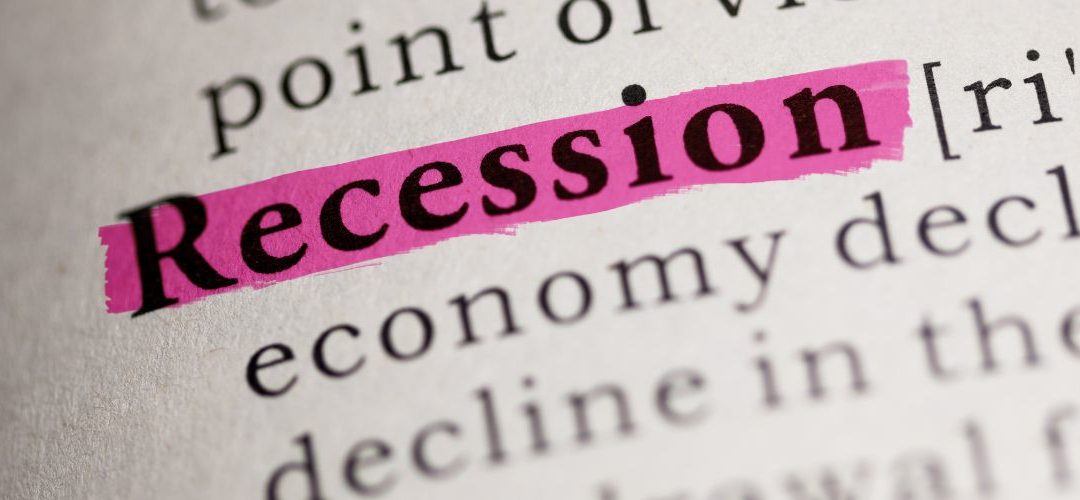Small businesses are often hit the hardest when the economy takes a downturn. With fewer customers spending less, many small businesses must cut back in order to stay afloat. In these times, it is more important than ever for small businesses to be as frugal as possible and have a plan for staying afloat during recessions.
Whether your business is just starting out or you’re looking to revamp your company before things get worse, our goal here at Protea Financial is to help you get ready for challenging times ahead. Get acquainted with some common risks that small businesses face during recessions, and learn strategies to safeguard yourself from potential pitfalls. Here are some practical tips on keeping your business safer through this period of instability.
What a Recession Can Do to a Small Business
A recession is a time when the economy slows down, and companies experience reduced sales, fewer customers, and higher costs. One of the most common effects of a recession is that it can harm small businesses, and this is because smaller companies may not be able to absorb the impact of reduced sales, so they may have to make significant cuts in their workforce.
If this happens, some employees may leave the company, which could lead to further reductions in staff numbers. Furthermore, if a small business goes through a period of financial difficulty, it may be tempted to take on more debt.
However, when the economy improves, this debt may make it harder for the company to repay its loans. Therefore, it could end up with even deeper problems than it started with.
Protect the Assets That Matter Most to Your Business
If you want your business to weather a recession, you have to be ready for one in advance by maintaining a tight ship. This means cutting discretionary spending so you have a healthy cash flow. You can cut out company-paid snacks, or put someone in charge of finding vendors that may offer better prices.
Carefully track your expenses so you know where your money goes and you can be sure you are not spending unnecessarily. Tracking your business expenses is often best left to your bookkeeper, as they can do it in less time and with more accuracy than you likely can.
Other options you have to protect your assets include:
- Bolster your relationships with your customers. This can keep business coming in, and sometimes even attract new customers during this unpredictable time.
- Get insurance policies that can help keep your business safer in the event of an unexpected event or emergency.
- Place the money you save into a savings account so you have cash reserves should you need them.
- Keep your company’s employees happy. It costs far more to bring in a new employee than it does to keep your current employees. Turnover is expensive, so make sure you offer options like competitive salaries and health benefits to keep employees with you during these tough times.
- Protect your company on all fronts, including making sure you have cybersecurity protection in place, as well as proper backups. The expense of losing data is much higher than replacing an up-to-date backup.
- Always maintain the highest reputation that you can. This allows you to build and maintain strong relationships with customers, who will typically keep buying from the companies they know and trust.
Save Where You Can
As you prepare your company for a recession, one of the best ways to stay afloat is to save where you can. This includes cutting unnecessary expenses and setting up automatic savings plans to save for the future.
Start by making a list of your business’s expenses and cutting any unnecessary ones that you can. Look for any areas where you can save, such as by reducing your energy use during business hours or by outsourcing some services if they are not absolutely necessary.
Another way to save money is to open up a savings account where you can store away money for a rainy day. You should also open up an emergency fund where you can store money to help pay for unexpected expenses such as repairs or to help meet payroll when cash flow is low.
Stay Flexible
A recession can often come out of nowhere, and it can be easy to be unprepared if you are not keeping an eye on the economy. As you prepare for a recession, you must keep an eye on any potential warning signs that one may be approaching. This includes monitoring major economic indicators and listening to what analysts and experts have to say about current events.
When a recession does hit, one of the most important things to do is to keep working. It’s easy for small businesses to get overwhelmed and paralyzed when a recession hits. By continuing to work, you can ride out the storm and be in a better position to emerge on the other side once the recession is over.
Learn More About Your Finances to Protect Your Small Business
Every aspect of a small business is vulnerable to financial loss, especially during the uncertain times of a recession. Your cash flow, sales, inventory, and more can be affected by unexpected expenses, including the costs of an emergency. Understanding your business’s financial health allows you to protect your business from potential financial losses better.
You can use several tools and financial reports to assess your financial health and identify areas for improvement. Some examples include:
- A cash flow forecast that shows expected incoming and outgoing cash flows over time.
- An income statement that shows revenue and expenses over time.
- A balance sheet that shows assets, liabilities, and owner equity in a single snapshot.
- A profit and loss statement that shows income and expenses over time.
Watch Your Cash Flow
If your business is tied to the economy’s health, you’ll want to keep an eye on your cash flow. When the economy takes a downturn, customer spending decreases, and you can expect less revenue to come into your business as a result.
It’s important to keep a close eye on your cash flow during these times and make sure you have enough cash on hand to get you through any rough patches. This includes having enough in your savings account to cover payroll and other expenses. It’s also a good idea to have a line of credit or business credit card available in case of emergencies, like sudden drops in revenue.
One important thing to keep in mind is that your customers’ payment timelines may also change during recessions. Credit card companies often extend payment deadlines and give users more time to pay their bills. Your customers may also be more likely to pay in cash during tough times, so you should factor these changes into your business’s cash flow projections.
Protea Financial Can Help You Learn Ways to Get Ready for the Recession
A recession can be a trying time for many small businesses. Make sure you are ready for one by keeping a close eye on your expenses, protecting your cash flow, and saving money whenever possible.
Stay focused and keep working during tough times; your business will be better positioned to emerge stronger once the recession ends. For help learning about how you can improve the health of your business or understand where your business stands, contact Protea Financial today!
Getting ready for the recession is a must for small businesses that want to survive. Let us help guide you. Contact us now and let us help!





